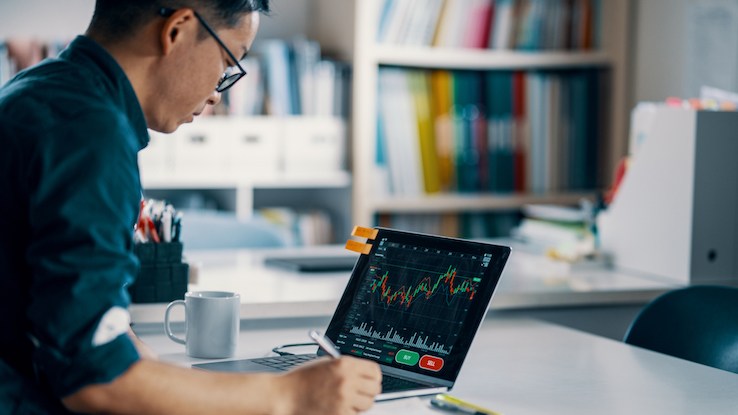
When most people start making investments outside of their retirement plans, they focus on buying stocks, exchange-traded funds (ETFs) and similar assets that are accessible to new investors during normal trading hours each day. However, a significant amount of activity and analysis actually happens outside of that window. One example of this type of investment is pre-market futures.
If you’re looking for investment tips and ideas beyond the traditional options, it can help to understand what pre-market futures are. Take a look into how they work and what they mean to investors to decide if you might want to begin utilizing them.
What Are Pre-Market Futures?
Pre-market futures are contracts that serve as commitments to buy or sell a particular investment on a set date in the future for a specific price. For example, you might formally agree to purchase ten shares of a stock for $50 apiece one week from the contract’s creation date. Regardless of the market price for the stock at the time the contract comes due, you’ll pay $500 to secure all ten shares. If the market price of the stock drops over that week, you might end up paying more for the shares than they’re worth. Conversely, you might get a good deal if the actual value of the stock rises over the week and the shares grow to be worth more than $500.
Usually, pre-market trading begins at 8 a.m. Eastern and runs until 9:30 a.m. Eastern. Pre-market futures are traded during that specific window. Futures and stocks don’t trade together, though. Instead, futures activities happen through different marketplaces. Additionally, various marketplaces may specialize in a specific kind of future. For instance, the New York Mercantile Exchange (NYMEX) focuses on commodities like metals.
Further, pre-market trade activities can happen over different electronic communication networks (ECNs). These don’t have physical buildings like you find with the New York Stock Exchange (NYSE). Instead, they’re purely digital landscapes that allow traders to connect outside of normal trading hours.
The Purpose of Pre-Market Futures
In many ways, pre-market futures are bets. Traders believe that a stock will act in a particular manner during regular trading hours. So, they set up futures contracts in hopes of securing investments at bargain prices or selling for a price that’s higher than the market rate.
Overall, a futures contract works in a buyer’s favor when the market price for a stock is higher than the amount they agreed to pay in their contract. When that happens, they essentially secure a gain equal to the difference between the market price and what they paid. If they choose to sell right away, that can translate into quick profits.

For sellers, the goal is to set up a contract in which the agreed-upon price the buyer will pay is higher than the market value of the stock. When that happens, the seller earns more from selling the stock to the committed buyer than they would’ve if they traded during regular trading hours that day.
Because these are typical goals people have when they opt to use features, pre-market futures usually don’t reflect “fair value” trades. A trade is deemed fair value when neither the buyer nor the seller sees a financial gain in comparison to buying or selling during regular trading hours at that time.
What Pre-Market Futures Mean to Investors
While investors often aren’t involved in the pre-market futures market, that doesn’t mean the activity there isn’t worth noting. Many market analysts and investors examine pre-market futures to anticipate possible opening prices for stocks, commodities and other assets. Pre-market futures can also be reflective of changing attitudes about a potential investment — which could help an investor anticipate price movements in the coming days or weeks.
In some cases, pre-market futures activities influence the upcoming trading day. For example, if pre-market futures indicate the price of a specific stock may drop, it makes some investors wary of investing in that company. As a result, more investors may attempt to sell, and there could be fewer buyers, essentially making the futures activity a self-fulfilling prophecy.
However, pre-market futures and prices once the markets open don’t always align. In some cases, after-hours trading activity behaves in unpredictable ways, and it may not match up to investor sentiment during traditional trading hours the following day. Additionally, unexpected news or events can alter stock prices in ways that the futures market can’t take into account, leading to discrepancies.
Who Can Participate in Pre-Market Trading?
While pre-market trading was once only available to a small subset of investors — typically those operating in a professional, licensed capacity or high-net-worth individual investors — that’s no longer the case. Instead, a variety of platforms support trading outside of normal hours, so it’s technically an option for nearly anyone.
If you want to trade before the market opens, you’ll need to sign up with a brokerage that supports extended trading hours. For example, Robinhood offers extended-hours trading, supporting some activities between 7 a.m. and 9:30 a.m. Eastern. However, for a transaction to complete outside of regular trading hours, the market and asset in question have to support it.
For futures specifically, you also need an account at a brokerage that supports futures trading. Additionally, you may need to complete additional steps to secure authorization to use those features; they aren’t always provided by default.
The Pros and Cons of Pre-Market Futures Trading
As mentioned previously, futures trading isn’t unlike betting; two investors are guessing that the value of a stock or similar asset will shift in their favor, though only one of them will ultimately come out on top.
While it’s possible to break even, most futures contracts result in either the buyer or seller coming out ahead, with their counterpart taking a financial loss — at least initially. Since that’s the case, pre-market futures trading is often viewed as risky.

Another reason why the risk is relatively high is that there are usually signs that both the seller and the buyer could be right in regard to their assumptions about future price movements in the market. If that isn’t the case, setting up a contract isn’t typically possible — either the potential buyer or seller would know that they’re unlikely to come out on the winning side before it’s created, so they wouldn’t agree to the terms.
Still, pre-market futures can be worth exploring, even if they’re inherently more risky than traditional stock purchases and sales. Some people use them for additional diversification or hedging. The ability to roll forward may also be available, depending on the investment in question.
Ultimately, you as an individual investor need to make sure that pre-market futures align with your investment strategy and level of risk tolerance. If they don’t, then it’s better to stick with other options, especially if you’re still learning to invest.





